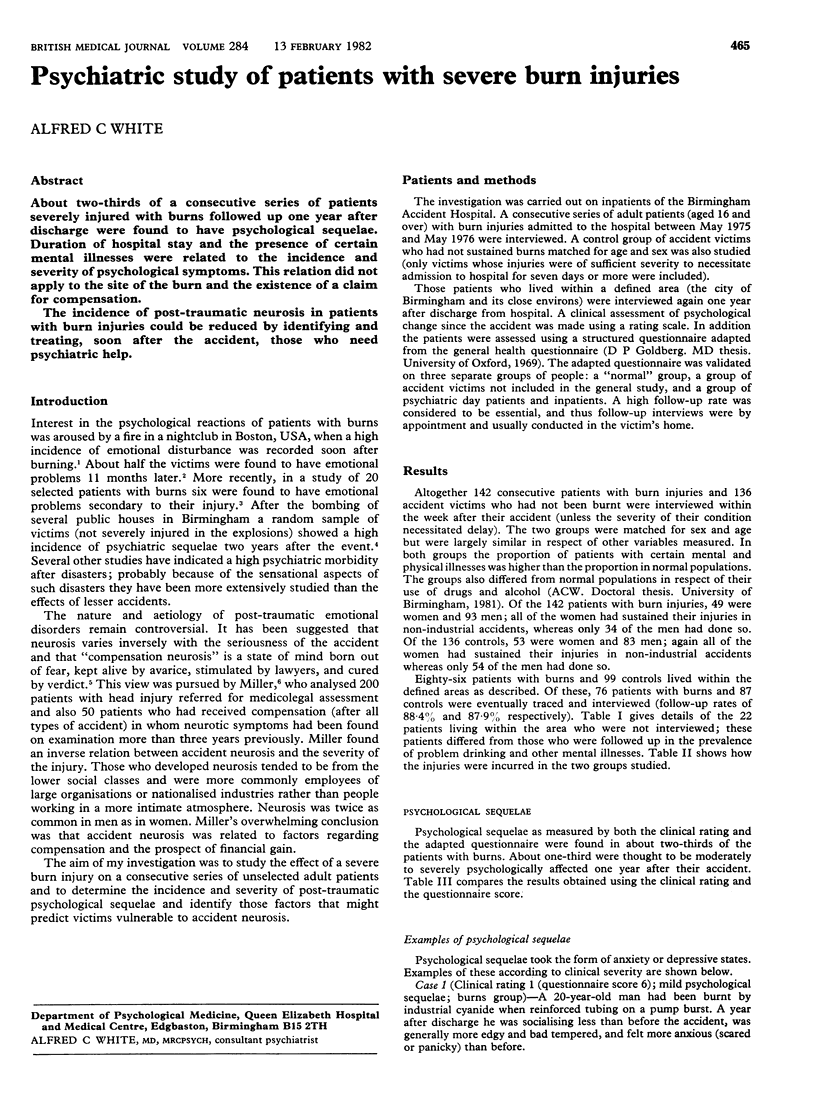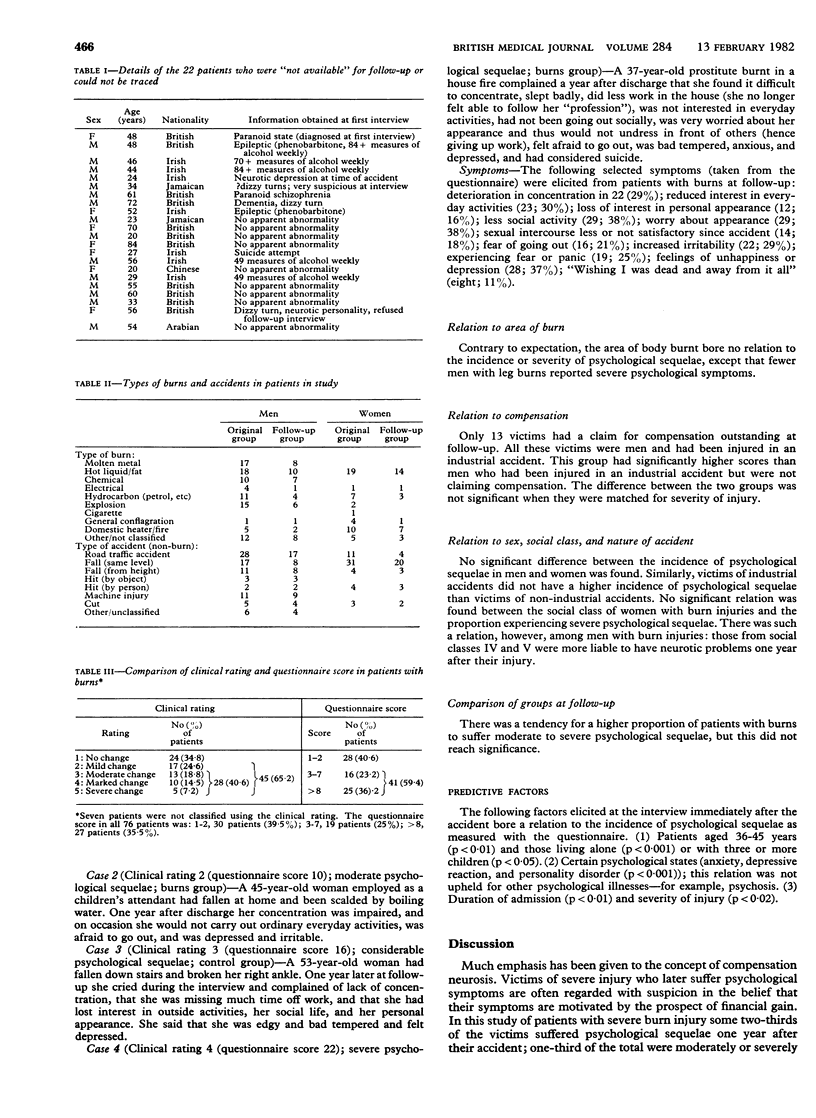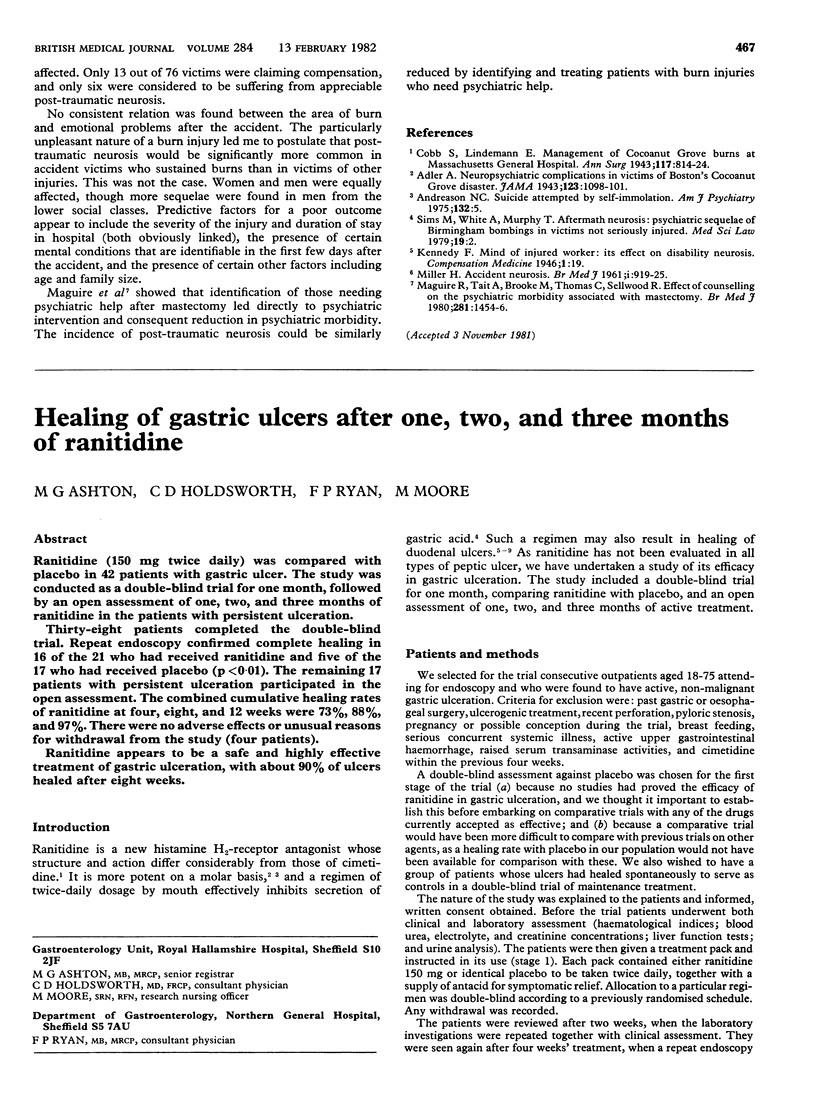Abstract
About two-thirds of a consecutive series of patients severely injured with burns followed up one year after discharge were found to have psychological sequelae. Duration of hospital stay and the presence of certain mental illnesses were related to the incidence and severity of psychological symptoms. This relation did not apply to the site of the burn and the existence of a claim for compensation. The incidence of post-traumatic neurosis in patients with burn injuries could be reduced by identifying and treating, soon after the accident, those who need psychiatric help.
Full text
PDF


Selected References
These references are in PubMed. This may not be the complete list of references from this article.
- Cobb S., Lindemann E. NEUROPSYCHIATRIC OBSERVATIONS. Ann Surg. 1943 Jun;117(6):814–824. doi: 10.1097/00000658-194311760-00004. [DOI] [PMC free article] [PubMed] [Google Scholar]
- MILLER H. Accident neurosis. Br Med J. 1961 Apr 1;1(5230):919–925. doi: 10.1136/bmj.1.5230.919. [DOI] [PMC free article] [PubMed] [Google Scholar]
- Maguire P., Tait A., Brooke M., Thomas C., Sellwood R. Effect of counselling on the psychiatric morbidity associated with mastectomy. Br Med J. 1980 Nov 29;281(6253):1454–1456. doi: 10.1136/bmj.281.6253.1454. [DOI] [PMC free article] [PubMed] [Google Scholar]


